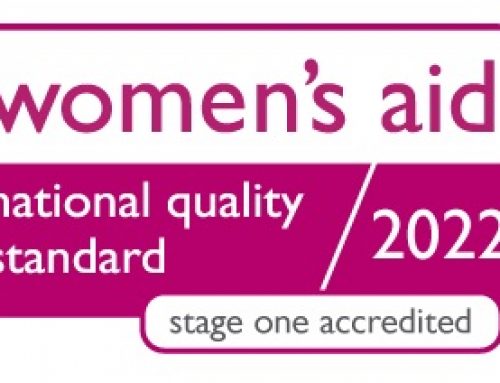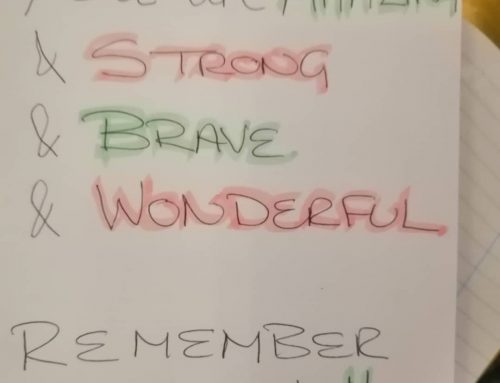The following article is a project assignment by Nicole Newbery. We thought it would be a great thing to share since it provides further insight into the work that Stepping Stones Luton undertakes. We hope you enjoy her work.
Introduction
Stepping Stones is “an independent, non-profit making, Community interest company.” Stepping Stones offer free and confidential advice to all of their service users and the aims of the organisation are to support women in the community of Luton with drug, alcohol, domestic violence and mental health issues (Stepping Stones,2012). They also offer free childcare, parenting classes and around 13 other classes including for those with drug and alcohol addictions. The service was set up in 2008 and its mission statement is “Together helping women in our community transform the stumbling blocks of life into stepping stones.” The aim of the organisation is to get the service users’ lives back on track by giving them free and confidential help, advice and support. All of the services are free and confidential and are available for all registered Service Users to attend. All of these services relate back to drug/alcohol, domestic violence or mental health issues and this is the criteria they have to meet in order to access the service, they can either have one of these issues or be in an environment in which they are subjected to this. Service users can refer themselves to the service, or be referred by another service or agency.
The Concept of “need”
Abraham Maslow suggested that there are basic needs for survival which determine human behaviour in the search of self-actualisation. He created a hierarchy of these needs. (Bremner and Slater, 2011) As an organisation, Stepping Stones would be seen as to focus on four out of the five of Maslow’s basic needs. The first set of needs are physiological, and these needs would be met in the home and daily life of an individual and the second set of needs as identified by Maslow, would be basic safety needs, and some of these could be met by Stepping Stones as these involve security of health, employment and family. Stepping Stones helps them with looking after their family as they provide free, safe childcare and parenting classes to look after the well-being of the children. Another example of how Stepping Stones meets safety needs involves Social Services, because if any of the children are in danger, stepping stones, as an organisation, have a responsibility to report this to Social Services in order to maintain the safety of those children. Stepping Stones also help with the basic self- esteem needs given by Maslow. These needs involve achievement, and the service users of this organisation can feel a sense of achievement in a variety of ways. Firstly, actually going to the service and seeking help for an addiction or for help with their children or to get help and advice on domestic abuse can give the ladies a sense of achievement because they have overcome a barrier. In addition, there are opportunities service users to do apprenticeships and by completing this, they would achieve an NVQ qualification. This is through the volunteering scheme as a few of the ladies who access or previously accessed the service volunteer within the organisation. The basic need of Love and belonging can also be met because service users can socialise with other women that access the service and this can give them a sense of belonging and make them feel less marginalised and feel like they actually have a purpose in life. Maslow also believed that there was a basic need for “self-actualization,” which he believed was the feeling and sense of fulfilment which is the feeling that a person is doing all that they are capable of doing, and are happy with whatever they are doing which would be fulfilling life goals and aims. Stepping stones can contribute towards this, as part of this need is problem solving which is done every day within this organisation because that is the reason behind women accessing this service, because they have a problem which they are unable or feel that they are unable to cope with alone. An example of this could be a service user with a drug addiction and who is struggling to take care of her daughter single-handedly. This lady would come to the service and after completing an initial assessment, she could choose to use the child-care facilities whilst using the parenting classes and also using the counselling service, complimentary therapy and possibly a confidential 1-1 appointment and these services could enable her to conquer her addictions and seek parenting advice and this could then meet part of her basic need of self-actualization.
Organisational Issues
Quality is the “conformance to requirements.” (Crosby, 1984) Quality is also about fulfilling the needs of service users by tailor-making the service according to their needs and requirements. One of the biggest ways in which Stepping Stones measures the quality of their service, is by working in partnership with service users to ensure that their needs are being met which would then make it a quality service as it is meeting the aims and goals and purpose of the actual service and organisation. In relation to the childcare that Stepping Stones provide, the quality is measured by regular Ofsted inspections.
The staff at Stepping Stones have shared beliefs, values and customs which enable them to cope with the everyday life of the organisation. They believe that the most important factor are the children because they are affected the most in the issues Stepping Stones deal with including domestic violence, drug and alcohol addiction and mental health issues. This is why the organisation focus so much on childcare and the health and well-being of the children. Stepping Stones provide free childcare for all of the women that access the service because when carrying out research when the organisation was first being created, they found that the biggest reason for women not accessing services as much as men was because of the lack and price of childcare. In addition, they set up free parenting classes within the service so that the women can also seek help and advice as well as practical support in providing the best start for their children. Stepping Stones also helps with the health of children as they provide free meals as part of the childcare service which are all part of a balanced diet and all meet around the dietary needs of the children. “Our personal attitudes affect the way in which we relate to others and our general behaviour towards them.” (2010) This could be as a result of the upbringing of an individual. For example, a member of staff may have been brought in a family that believe that all single mothers are bad mothers. If this was the case, this employee would have to put this opinion and view to the back of their mind in order to practice in a non-discriminatory way, especially because they are working in an environment in which single mothers are bound to come in to access the service every day.
Stepping Stones has “always been massive on partnership working.” They work with other drug and alcohol agencies, local authorities, courts, the Police, Social services, probation services and many others. When Stepping Stones was first created and put together, these other services and organisations were more reluctant, but as time has gone on and this organisation has strengthened and gotten bigger, the more services have got involved and the more these services have begun to believe in the aims and goals of Stepping Stones. In this case, multi-agency working has benefited this organisation, not only financially, but also by helping them to build their cliental and strengthen the services in which they provide. One way in which Stepping Stones work in partnership is when a service user comes to the organisation and needs help to get their children back if they have been taken by Social Services. Stepping Stones would then work with the service user and Social Services to work on making that household safe enough for the children to return. According to Balloch and Taylor (2001), “Partnership working is an increasingly central feature of all public services.” Without the influence of partnership working, Stepping Stones, as an organisation would not be as strong as it is in present. This is because working in partnership with other organisations and services has a positive impact on many parts of an organisation. In this case, the other services help with funding, the supporting of the service users and also with helping the staff members. For instance, the various health services in the community help with giving services users free and confidential health advice in relation to drug and alcohol addiction and misuse.
Professional Issues
To be a Health and Social Care professional within Stepping Stones means that staff members must take many factors and principles into consideration including confidentiality and accountability. Confidentiality is an issue addressed within this organisation as all service users will undergo an informal initial assessment so the service providers are able to see which services they are in need of, and during this process, they will also discover many personal issues including drug and alcohol addiction, crimes the women may have committed, some of them may be victims of domestic abuse and many of them have mental health issues. All of these pieces of information and anything else identified in the initial assessment must remain confidential. However, during this process, the staff member carrying out the initial assessment must explain to the service user that if there is anything they need to share, then the confidentiality will be broken. The cases in which this occurs are when that person themselves are in harm or danger, or when children are in danger. The ladies are made aware of this before the initial assessment, and must sign a confidentiality agreement. In addition to this form of confidentiality, the organisation also take the handling of confidential information extremely seriously. All personal information, documents and files are locked away and only necessary, senior members of staff have access to these files, but all of the keyworkers must go through the administrator order to see any of these. Stepping Stones have “an obligation of confidence” to the service users, as they are trusting in them that personal information is going to remain confidential except when absolutely necessary and this trust builds a better relationship between service users and providers. (2005) Accountability is also addressed within Stepping Stones. One example of this, is with regards to the funding they receive because they, as organisation are accountable for the way in which the funding is spent as they have to make justifications for this. The manager for this organisation is the most accountable member of the team and she is accountable for all aspects of Stepping stones. When accountability is not properly in place or practised, this can lead to “ineffective work practices, quality control issues” and “leadership issues.” (Staub, R, D, 2005)
Evidence-based practice (EBP) involves using professional expertise and evidence to make better decisions regarding the care of individuals. (Sackett et al, 1996) The manager of Stepping Stones has professional experience in drug and alcohol abuse, so she can use the knowledge and expertise whenever the organisation have a service user with these types of issues in order to give the best help she can to that individual.
Another issue which Stepping Stones, as an organisation address is safeguarding as it “is a statutory need” which is linked in with the child care and is taken very seriously by all staff members and whether they are working in the childcare department or not, they must all under-go training and participate in the safeguarding course which is run by the local Council. In addition, the team are always under supervision so that any concerns surrounding the issue of safeguarding can be addressed immediately. In talking about vulnerable groups, Larkin, M (2009) says that those who need safeguarding the most include “people with mental health problems, drug users, female sex workers.” These are all vulnerable groups and these are all safeguarded by Stepping Stones as an organisation.
Working with Service Users
Stepping Stones promote equality and diversity in many ways throughout the running of the organisation. One way in which they do this is by asking service users their ethnicity, religion and dietary requirements as part of the initial assessment, which prevents any discrimination as it ensures that their needs, beliefs and requirements are all conformed to. An example of this is religious dietary requirements as food is often provided for the adults, but children have hot meals everyday as part of the childcare service, so by asking about dietary requirements, they are promoting equality and diversity and preventing discrimination as halal kosher foods and any other religious foods can then also be provided. Stepping Stones is also based in an extremely multi-cultural area and community, so all the services must conform with the needs of that community.
One of the biggest contributions towards the whole structure and work of the organisation is the service user involvement which is massively encouraged within this service and the work that they do. They have regular discussions about future plans and have a say in future activities and changes, and are able to air their thoughts and views on the service given. This enables them to meet the needs of each service user. In the initial assessment, each service user is informed of all of the available services so that they can then decide themselves which services they would like to access. In addition, they have a group set up once a week in which the staff members inform the service users of any future plans they may have to find out what the service users think. In addition to this, there are three open slots each week called “service user involvement” in which service users can in and speak to the Service User Involvement Coordinator. Working in partnership with service users makes sure that everybody “has equal status and is clearly valued.” (The College of Social Work, 2012) The way in which Stepping Stones, as an organisation has regular spots set up for meeting with the service users, shows to them that they are of an equal status to the team members and also that the staff value them and their thoughts and opinions on how they run the organisation and the services that they offer. Involving the service users with decision making and with deciding the types of services they would like to access and the care they would like to receive also empowers them.
Advocacy is “the process of working with and/or on behalf of clients.” (Larsen, Hepworth, 1986) Stepping Stones as an organisation promote advocacy as the key workers and team members often attend meetings with or on behalf of the service users. For example, they might attend a meeting alongside one of the women if she had a meeting about potentially getting her children back from Social Services and they would then attend all of these meetings to show professional and emotional support to the service user. This empowers service users, especially if they have mental health issues because they may feel unable of not confident enough to go to something on their own, so by showing support to the women, Stepping Stones are empowering them.
Conclusion
This investigation has benefited me because it has allowed me the opportunity to get an insight into an aspect of health and social care that I have no experience in and that I have never seen before. I have previously had an interest in working with victims of domestic violence, so this gave me just a small idea of what this would be like as a career. In addition, I have been able to grasp a better understanding of what it takes to actually run an organisation of this size which has helped me to realise what it would take to run in those same footsteps. The future aims and goals for Stepping Stones remain the same as those of which they had when the organisation was first created and built.
References
Balloch, S and Taylor, M (2001). Partnership Working Policy and Practice. Bristol, The Policy Press 2001.
Bremner, G and Slater, A (2011). An Introduction To Developmental Psychology. 2nd ed. Glasglow: Blackwell Publishing Ltd. 69-71.
Crosby, P.B, (1984) Quality Without Tears- The Art of Hassle-Free Management, USA, Library of Congress Cataloguing in Publication Data.
Pritchard, J (2008) Good Practice in Safeguarding Adults- Working effectively in Adult Protection, USA & London, Jessica Kingsley Publishers
Larkin, M (2009) Vulnerable Groups in Health and Social Care, London, SAGE Publications Ltd
Stepping Stones, 2012, About Us,
The College of Social Work, 2012, Working with Service users and Carers, [online] Available at
Mind for better mental health, Anon, Legal briefing: Confidentiality and data protection, 2005, [online] Available at < http://libweb.anglia.ac.uk/referencing/harvard.htm> [accessed 1st May 2012]
Staub, R,D, The Business Journal, (2005) Accountability and its role in the workplace, [online] Available at http://www.bizjournals.com/triad/stories/2005/01/17/smallb3.html?page=all [accessed 1st May 2012]
Sackett et al, 1996, What is Evidence-based practice? [online] Available at < http://www.ebnp.co.uk/What%20is%20EBP.htm> [Accessed 1st May 2012]
Chapman, A, 2001, Maslow’s Hierarchy of need, [electronic print], Available at McLeod, S, Simply Psychology, 2007, Maslow’s Hierarchy of needs, [online] Available at Advocacy, What is advocacy?, n.d, [online] Available at < http://sw741advocacy.tripod.com/> Anon, n.d, Principles and values, [e-book], Available through: Nottingham Trent University website, Godfrey, K, 2012, Discussion on Stepping Stones, [speech], (Personal Communication) 23rd April 2012 Stepping Stones, Stepping Stones, luton [leaflet] n.d






Leave A Comment
You must be logged in to post a comment.